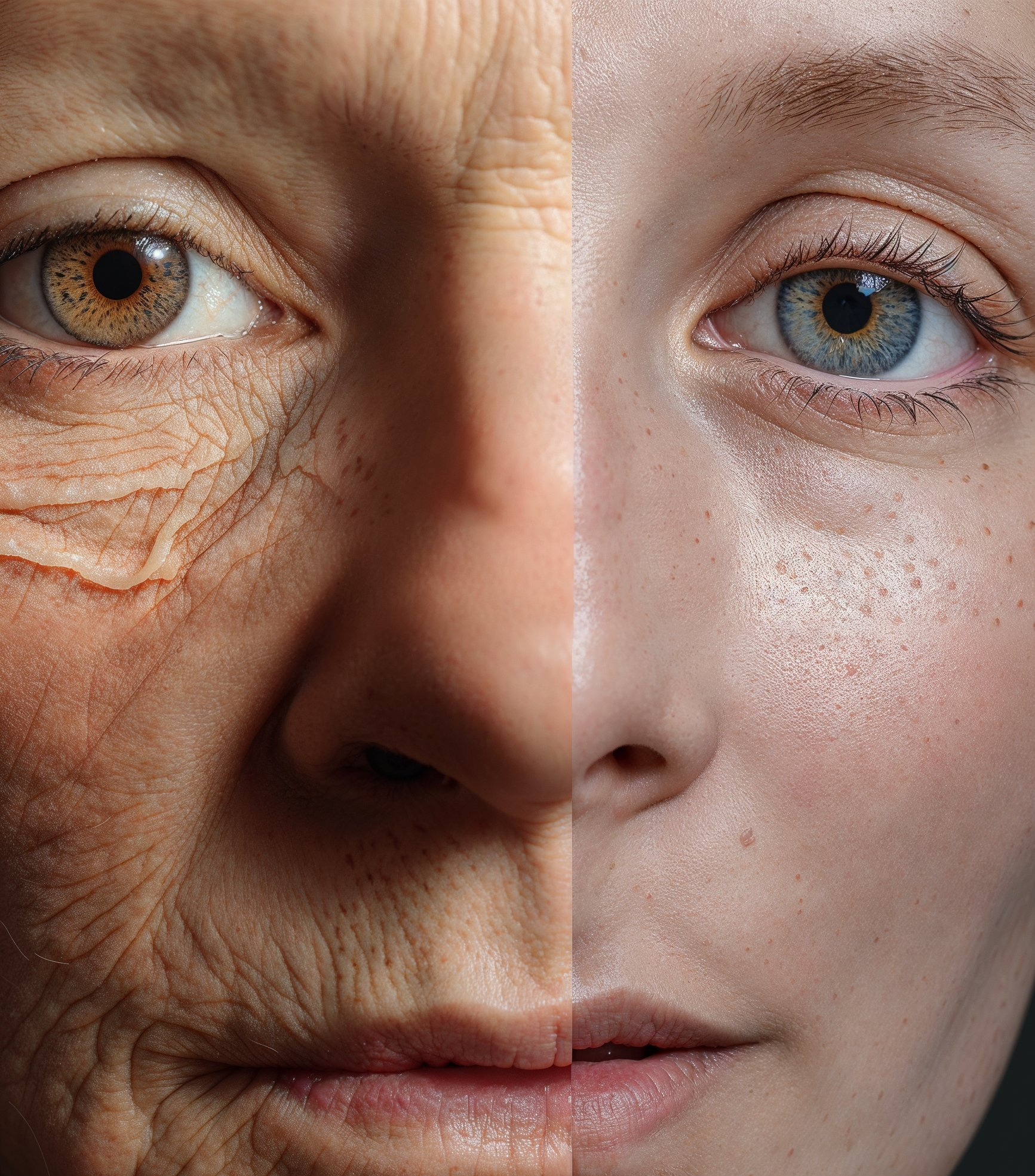Is your reflection in the mirror showing you the first signs of wrinkles and dark spots? Your days of smooth, radiant, and elastic skin are numbered, and the ticking clock of time and sunlight are to blame.
Why does our skin age? What is the most effective method of anti-ageing science?
Over time, the sun's ultraviolet (UV) light damages certain fibres in the skin called elastin. The breakdown of elastin fibres causes the skin to sag, stretch, and loose its ability to snap back after stretching. The skin also bruises and tears more easily and takes longer to heal.
Nothing can completely undo sun damage, although the skin can sometimes repair itself. Lasers can also help reverse some of the damage. It's never too late to begin protecting yourself from sun exposure and skin cancer.
Sugar will attach to collagen molecules and make it more fragile making it difficult for the skin to repair itself and subsequently cause accelerated ageing.
Furthermore, due to the saccharification reaction, the more sugar you consume, the more protein it will attach to causing glycation. Glycation inhibits collagen with elastin to function properly which in turn causes the skin to become looser.
However, if you want to achieve ‘ageing reversal’ through exercise, long-term and uninterrupted exercise is necessary. This is however difficult to achieve given the daily work, family and study commitment. So is there a reliable and more convenient anti-aging method?
Why does our skin age? What is the most effective method of anti-ageing science?
1. UV DAMAGE
UV rays from sunlight can cause poor skin quality. The skin experts concluded through experiments: 75% of skin ageing are caused by sun exposure.Over time, the sun's ultraviolet (UV) light damages certain fibres in the skin called elastin. The breakdown of elastin fibres causes the skin to sag, stretch, and loose its ability to snap back after stretching. The skin also bruises and tears more easily and takes longer to heal.
Nothing can completely undo sun damage, although the skin can sometimes repair itself. Lasers can also help reverse some of the damage. It's never too late to begin protecting yourself from sun exposure and skin cancer.
2. OXYGEN
At the same time, small molecules are released for cell metabolism but there is still 1% to 2% of the oxygen that will attack our DNA and cause collagen-producing fibroblasts to age. These attacks accumulate over time and will eventually show up on our skin. Your skin’s ability to absorb collagen will decrease due to ageing.3. SUGAR
Sugar is present in most food. It helps the human body to generate dopamine that keeps us in good mood. However, it can also accelerate your ageing!Sugar will attach to collagen molecules and make it more fragile making it difficult for the skin to repair itself and subsequently cause accelerated ageing.
Furthermore, due to the saccharification reaction, the more sugar you consume, the more protein it will attach to causing glycation. Glycation inhibits collagen with elastin to function properly which in turn causes the skin to become looser.
MAKE YOUR AGE ONLY A NUMBER
Frequent exercise can help the human body to accelerate glucose metabolism in the body and alleviate the glycation reaction. Healthy weight control can increase carnosine produced in muscles which also have anti-glycation effects. Over time, it also achieves the effect of anti-ageing.However, if you want to achieve ‘ageing reversal’ through exercise, long-term and uninterrupted exercise is necessary. This is however difficult to achieve given the daily work, family and study commitment. So is there a reliable and more convenient anti-aging method?
Share



Leave a comment
This site is protected by hCaptcha and the hCaptcha Privacy Policy and Terms of Service apply.